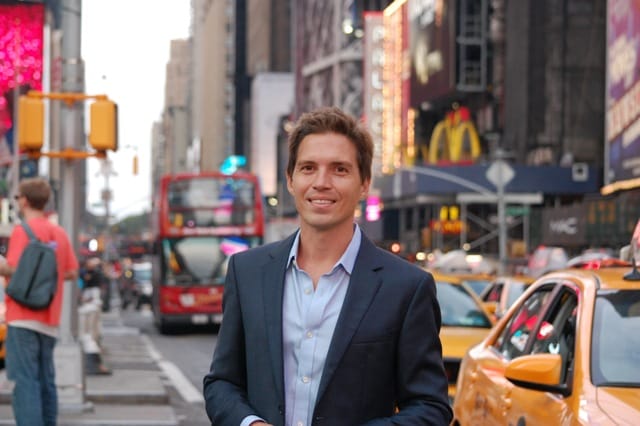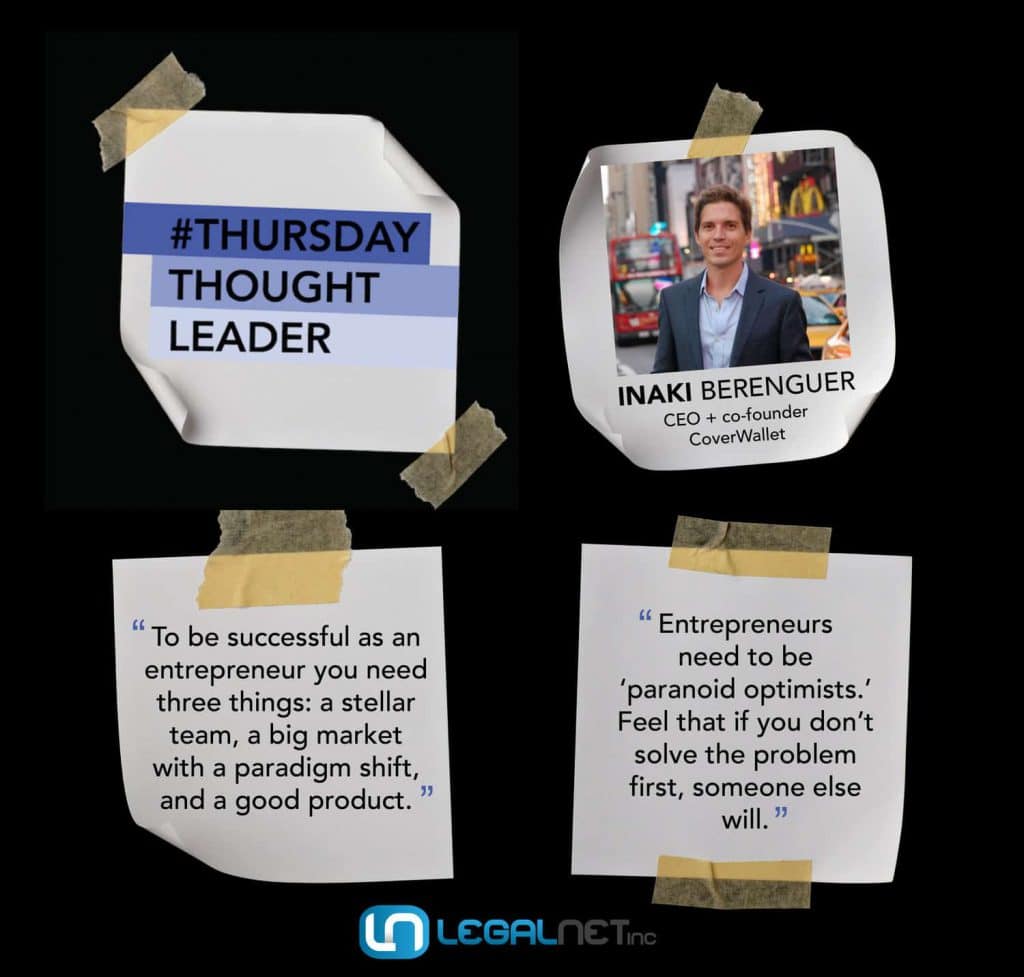
Can you imagine what it must be like to start a company? All sense of security and stability are thrown out the window and you have to learn to hustle as if your life depended on it (because it does). Now, imagine doing it not once, but three times… and being wildly successful with each venture.
This is the life of Inaki Berenguer. He has a Ph.D. in Engineering from the University of Cambridge and an MBA from MIT. Berenguer has two patents under his belt from his early days as an engineer and after putting in some time at a few prestigious companies, decided to go off on his own. He was the co-founder and CEO of two companies, Pixable and Klink, and now he’s full on in at his latest venture: CoverWallet. There, he has used his background in technology to reinvent the way people manage and buy insurance. Read on to hear how he keeps raising the bar higher for himself and those around him.
You are involved with a lot of things. You’re a co-founder, an angel investor, and a patent inventor to name a few. How did you fall into these positions?
In my twenties, I was a scientist and researcher. I completed a Masters degree and a Ph.D. in Engineering at Cambridge University, spent two years as a Fulbright Scholar at Columbia and spent time at other universities such as Princeton.
However, I realized that solving engineering problems seemed similar to solving customer problems (or needs) using technology. You start with a problem; you come up with a new approach to solving it, based on hypotheses, and then you test whether the solution works or not. I decided to be a tech entrepreneur. After selling my first company, I started investing in other entrepreneurs to help them get off the ground.

Your former company was Klink, in which you were also the co-founder and CEO. What mistakes and successes did you experience in that role that has helped you become better in the same roles at CoverWallet?
When you are new in an industry (e.g., productivity tools or insurance), you need to learn as much as possible about the industry upfront. After you find out how things work within an industry, start questioning why things work a certain way.
Steve Jobs used to say that you should question how things work. Things work a certain way because someone, like you and me, decided that things were going to be that way. However, you have the ability to question and change those, especially if you think that they don’t make sense. Technology gives all of us the power to make improvements to the way the world works.
I have seen that in traditional industries, such as insurance, things work a certain way, and nobody asks why. They simply tell you “that’s the way things are.” Some of the people within an industry may get frustrated when an outsider tells them that it doesn’t make sense, but that’s how you disrupt traditional industries, bringing technology to change how things work.
Everyone agrees that to be successful as an entrepreneur you need three things: a stellar team, a big market with a paradigm shift, and a good product. In early stage companies, team is the most important of the three, because if the team is smart and driven, they can iterate over a mediocre product or figure out adjacent markets.
On top of these three, I like to say that entrepreneurs need to be “paranoid optimists.” Paranoid in the sense of feeling urgency. You need to have a level of conviction that the opportunity is great, and someone is going to capture it. You see it as so obvious (that’s the “optimist” part) that you feel the urgency. Be paranoid: feel that if you don’t solve this problem first, someone else will.
Back in the day, you started as an intern and now you’re the top level executive of your own company. What was that journey like and how did it help shape how you run your team?
By having multiple entry-level jobs, you learn what you like and what you don’t like about a company. So when you start your own, you can implement the things that you liked and forget the rest.
 What are some rituals you participate in every single day to help you maintain focus and clarity?
What are some rituals you participate in every single day to help you maintain focus and clarity?
I run 6 miles at 6 am. The endorphins and blood activations help me start the day with energy and positivity – “Mens sana in corpore sano.”
What’s one book that you recommend and why?
“Predictably Irrational”. It helps you understand how people, who are rational individuals, end up making irrational decisions, in a predictable and systematic way. It also teaches you how you can take advantage of it.


 What are some rituals you participate in every single day to help you maintain focus and clarity?
What are some rituals you participate in every single day to help you maintain focus and clarity?




